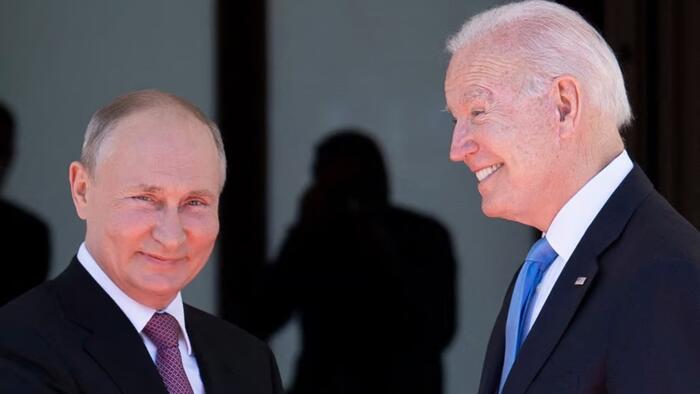In recent discussions surrounding Bob Woodward’s upcoming book, intense scrutiny has arisen over claims that former President Donald Trump sent COVID-19 test kits to Russian President Vladimir Putin during a critical period of the pandemic. This news has triggered significant backlash, particularly from Vice President Kamala Harris and other political figures. However, these revelations pale in comparison to the potentially more significant and alarming allegations concerning President Biden’s handling of U.S. foreign policy amid the ongoing conflict in Ukraine. According to CNN’s report on Woodward’s book, Biden’s decision-making during a tense moment in September 2022 raised the specter of nuclear conflict, suggesting that the Biden administration believed there was a 50% chance that Russia would resort to using tactical nuclear weapons due to their escalating military losses.
The urgency of the situation prompted Biden to instruct National Security Adviser Jake Sullivan to communicate with Russian officials to clarify the potential U.S. response to any use of nuclear weapons by Russia in Ukraine. While this directive does not explicitly indicate that Biden planned to retaliate with nuclear weapons or deploy U.S. troops into Ukraine, the very contemplation of such extreme measures underscores a grave escalation in international tensions. Biden’s direction to “tell them what we will do in response” raises critical questions about the risk of nuclear engagement over a geopolitical crisis involving a nation that historically, the U.S. has not prioritized as a vital national interest, even during the heightened tensions of the Cold War.
Comparative assessments highlight a troubling inconsistency in the U.S. approach to national security interests. When dealing with regions deemed vital, such as Western Europe or Japan, the consideration of nuclear threats is framed within a context of defense and deterrence. However, the situation in Ukraine does not meet the same historical standards of importance. To even entertain the possibility of nuclear escalation for a situation that lacks such significance appears reckless and profoundly hazardous. This raises concerns not simply about the strategic thinking within the Biden administration but also about the risks posed to global stability should such calculations continue.
The implications of Biden’s potential willingness to risk nuclear confrontation in Ukraine cast a shadow over the criticism directed at Trump, particularly regarding claims about his leadership and decision-making capabilities. Critics often label Trump as dangerously unstable, yet these recent developments expose a contrasting narrative — a sitting president who may be willing to flirt with catastrophic consequences over a conflict that does not directly endanger American security interests. This dynamic complicates the discussion around presidential fitness for office, suggesting that the evaluation of leadership should encompass not just past actions but also present posturing amid crises.
Kamala Harris’s retort when questioned about evaluating Biden’s actions vis-à-vis Ukraine — claiming “not a thing that comes to mind” when considering potential alternative actions — speaks to the entrenched political responses that often overlook serious implications in favor of party line loyalty. Such stances contribute to a broader culture in American politics, where significant foreign policy decisions can be rendered as mere talking points rather than critical evaluations of long-term consequences on global security.
As the discourse continues around the ramifications of the Biden administration’s policy in Ukraine, it’s crucial to maintain focus on the profound errors in judgment that may accompany willingness to escalate military responses in volatile situations. This highlights an urgent need for comprehensive examination and debate around U.S. foreign policy priorities and the prudent management of potential threats to national and global security. Rather than becoming ensnared in the political theatrics surrounding individual political figures, it is imperative for policymakers and the public alike to engage in a more profound dialogue surrounding the implications of nuclear decision-making and the principle of preserving peace amid international disagreements.

